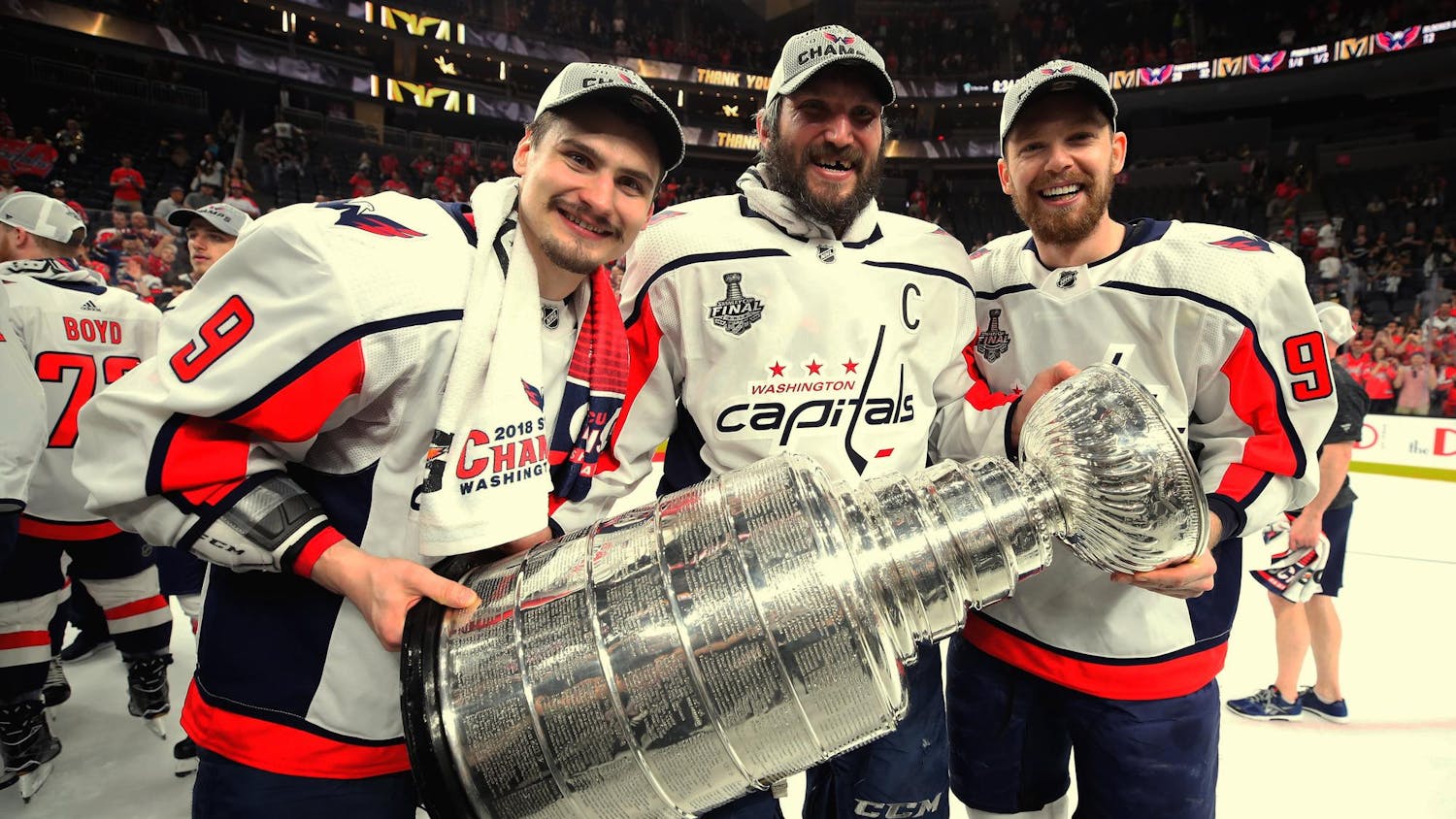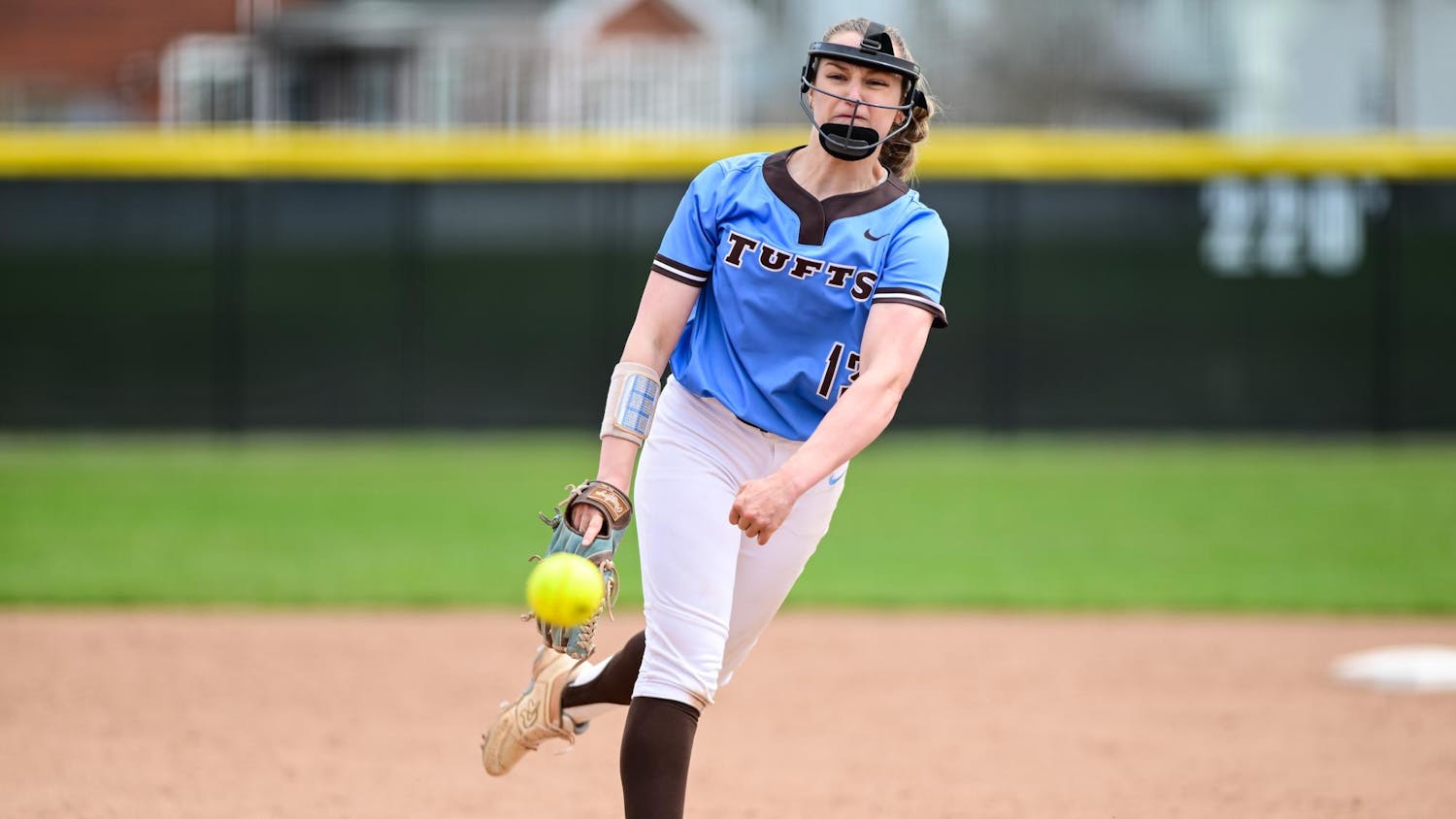Goldstein is a sophomore from Brooklyn, N.Y. who competes on the men's track and field team and contributes to the Daily as an editor for the sports section. He is a self-described Boston-loather, best illustrated by his weekly column "The Anti-Bostonian." The Daily sat down with Jeremy to ask him about his life as a student and an athlete.
Tufts Daily (TD): What's it like being an athlete-journalist?
Jeremy Goldstein (JG): It's cool because I see the processes of my sport, and how you prepare and recover from meets and what it's like to be at these meets and competing at these meets. Covering one of these is different but similar. It's different in every sport, but it's interesting to see different athletes in different sports, different reactions to different things like championships and things like that.
Guys on the team will ask what it's like to write for the paper, and they're like "make sure they're giving us good coverage, that we're getting our fair share." And you know I'm like, "I'll do what I can."
TD: What is your take on mistakes at the Daily regarding sports articles?
JG: It's interesting because you're behind the curtain a little bit. You're on both sides. I would say that it's pretty cool because, you know, you're on one side and you have information that other people don't have. It's interesting how one mistake can turn into a "they're disrespecting us" moment when obviously it's not true.
It's interesting, because in track, you can slip, you can get out slowly from the blocks or you take a bad jump. Everyone makes mistakes, they just manifest themselves differently when it's in print, because the print lasts forever. That's a big difference.
TD: When did you first get involved with track and field?
JG: In high school, I ran track and field for four years. It was definitely crucial in my decision to come to Tufts. It seemed like a down-to-earth vibe on my overnight trip. The success of the program and the strength of the academics here were also huge overriding factors. Once I got here, there was a great group of guys in the team — top to bottom leadership, a really good structure. What it's done for me is given me a lot of structure and balance across days, weeks and months. The team camaraderie is also huge. Everyone always has your back.
TD: What kind of writing did you do in high school?
JG: I did a lot of playwriting in middle school, and in high school I wrote for our school magazine. I always had an interest in creative writing. Of course I loved sports, and I wasn't sure if short stories or playwriting was exactly the kind of storytelling I was looking for. I was looking for other outlets, I would say, to try and tell a story. That's why I love opinion writing where you have more voice but it's not necessarily fiction. That's kind of what journalism has been for me.
TD: Is it hard to balance interests from athletes and the Daily?
JG: Yeah, you definitely feel like you're juggling multiple obligations. On the team there are more personal relationships, and you don't want to see anyone feel like they're being victimized or put into a position where they're feeling misrepresented. But I know what it's like to cover someone, and I know how easy it is for a small mistake to be blown up to something bigger than it should be. None of it is intentional, it's just logistical. Usually it doesn't happen. If this happens one out of 100 times, it's only glaring because it happened to you. In my opinion, I just tell people: "keep perspective, they're not perfect, it's not the end of the world."
In Div. III sports, you're covered by probably one publication: the Daily. And it's being done by a kid who's not paid and does it because he or she enjoys it. The best athletes may get covered by other publications, but it's unlikely. It's interesting.
TD: Like you said, Div. III sports coverage is a small world. How does that impact athletes' experiences with coverage?
JG: At a Div. I school, you're getting covered by multiple publications in addition to your college paper. At Tufts, maybe that's the case, but I doubt it. Maybe athletes are not used to coverage at all. Getting interviewed after your performance is something a lot of people aren't used to ... I remember talking to a teammate a couple weeks ago after an interview, saying "This is so weird, this never would've happened to me in high school." So I think that is a big difference. To get covered at all is an honor, so to see it get misrepresented by that one source, it can hurt. It can leave a mark.
TD: What is the "gulf" in Div. III sports?
JG: The big thing in Div. III sports is the enormous gulf between some kids who could be [in] Div. I programs. If they're getting misrepresented they can feel like: "I should do better than this school's paper." Because there are a lot of kids who go to nationals who are very talented and could be at better schools. And then there are kids who are just happy to be on the team. So there's that gulf. Some athletes expect perfect coverage, but some people are fine with our limited ability to cover everything perfectly.
TD: Where does that mentality of the better athletes come from, in your opinion?
JG: A lot of the athletes who are performing so well are the ones putting in the most work. Ultimately, they probably deserve the most recognition. That hard work is manifested in their top performances. It's not just like, "oh, they're naturally talented." No. people put in work their entire lives for this. So you could argue they deserve top, top coverage. It's just the nature of our journalistic world where there aren't enough resources everywhere to be properly covered in every instance.
TD: What are your thoughts on sports journalism as a whole at Tufts?
JG: You can always find a story. Whether you're writing a column, covering a sport, writing a feature, there's always an angle in something and a story you can find. Sport is a game of narratives more than anything else. And it's interesting to see how it plays out on any athletic level. There are always characters and actors who make up drama. There are the ones at Tufts who are the creme of the crop — I don't want to say prima donnas — who may deserve that attention. I think journalism can live in any environment, in any climate. This just happens to be the one we find ourselves in.
Editor's note: This interview has been edited for length and clarity.
Daily Week Presents: Jeremy Goldstein, athlete-journalist






